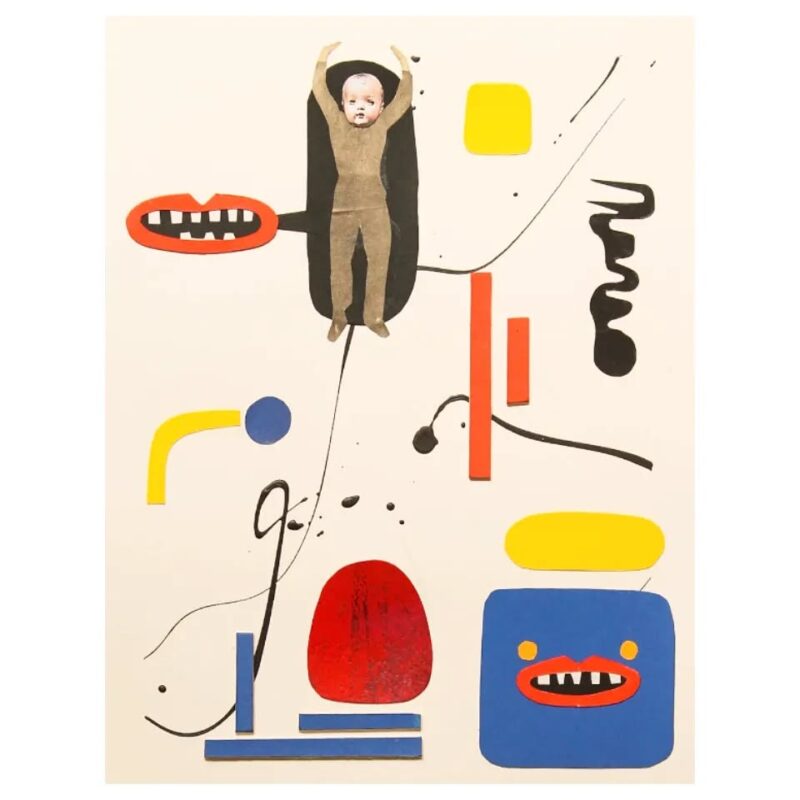This month at Guernica, we move from a Rembrandt painting to the streets of Chiang Mai, from the Dogon country of Mali to the corridors of a Catholic school, and into the haunted terrain of Indigenous horror. Across works as intimate as they are global, one word keeps surfacing: legacy. What do we inherit from our context, and how do we carry it forward? How do we reckon with cultural traditions that are both sustaining and fraught? And in an age where the past is constantly resurfacing on our screens—what the late cultural theorist Mark Fisher called “the slow cancellation of the future”—how can legacies impress upon us the weight of memory without marooning us in a strange sense of repetition, of a clotted or blocked time, as if history itself refuses to pass?
In fiction, an excerpt from Thomas Schlesser’s novel Mona’s Eyes follows a young girl whose mother fears she may lose her sight. During stolen afternoons at the Louvre, Mona’s grandfather teaches her to see—through Rembrandt’s chiaroscuro, through the lives and losses painted onto canvas—as a way of facing what might come. Meanwhile, James Chan Yu’s “Tourists” unfolds in Chiang Mai, where Ken, a Korean American who once lived in Thailand, finds himself reduced to “just another farang” as he travels with his American girlfriend through heat, crowds, and the small humiliations that reveal the fault lines of belonging abroad.
In nonfiction, Vamba Sherif’s “In Search of Ouologuem” traces the rise and erasure of Malian novelist Yambo Ouologuem, whose audacious Bound to Violence won the Prix Renaudot before accusations of plagiarism led him to retreat from public life. Sherif’s essay becomes both a personal pilgrimage and an inquiry into the literary inheritance of Africa, Europe, and beyond.
In conversation, Anna Bruno, interviewed by Maria Kuznetsova, discusses her new novel Fine Young People, set in a Catholic high school where two friends investigate the long-ago death of a hockey player. She reflects on suspense, the Catholic church, and how young narrators navigate authority with insight rather than precocity.
For our Global Spotlights, Nathan Niigan Noodin Adler’s “The Harvest” drags Indigenous horror into the light, showing how histories of erasure and violence resurface from the soil.
And in poetry, the issue closes with French-Senegalese poet Sylvie Kandé, whose trilogy—“Visitation,” “Colophon II,” and “Waltz of Stone”—translated by Nancy Naomi Carlson, weaves exile and generational scars into lyric form. Alongside her is Dominican poet José Mármol, one of his country’s most celebrated voices, whose elegiac “An Emptiness Yet to Come” and “The Sad Ballad of Wyckoff,” translated by Nathalie Handal and Eileen O’Connor, explore absence while holding fast to love.
The legacies these pieces confront—whether familial, psychological, artistic, or cultural—are neither static nor unambiguous. They tell us that, if we are indeed suspended in an age when the future has been stalled, as Fisher suggested, the act of looking back may require as much discipline as it does imagination. As José Mármol writes, “the omen of your absence remains in the halls, / an emptiness yet to come”: lines that distend the word legacy with a vision of time folding in on itself, where the unarrived leans, already, against the present.
Featuring, courtesy of the artists, striking original artwork by Patil Balian, Rembrandt van Rijn, Charlotte Brathwaite & Malick Welli, Alioune Diagne, Lucia Hierro, Kenny Rivero, Enrique Pichardo, and Stephen Arboite.
–Youmna M. Chamieh, Editor-in-chief
—
“Rembrandt, Know Yourself” –
In an excerpt from the novel Mona’s Eyes, Thomas Schlesser weaves together a mother’s paralyzing fear for her daughter’s health and a grandfather’s patient lesson on art and life.
—
“Tourists” –
A couple’s trip to Chiang Mai exposes the cracks in their relationship as Ken, who once lived in Thailand, tries to navigate the city and their journey with a mix of nostalgia and discomfort, while his girlfriend, Jackie, embraces her role as a tourist. The story follows Ken as he grapples with his shifting identity and his place in a country that he once called home, against the backdrop of their evolving and increasingly strained dynamic.
—
“In Search of Ouologuem” –
Vamba Sherif goes on the trail of a literary forebear in this essay of deep intergenerational and intertextual longing spanning Africa and Europe, classic works of literature, and the written traditions of several countries, to examine why a once-celebrated writer fell into disgrace and disappeared.
—
“Anna Bruno: Suspense, Secular Gods and Scandal in an Elite Catholic School” –
The writer on creating a protagonist who feels authentically young yet insightful, transitioning to writing suspense, and tackling the Catholic church.
—
“The Harvest” –
In this story, Nathan Niigan Noodin Adler renders horror as something tangible and unearthed, pointing to the buried histories of inheritance and erasure that lie just beneath the surface of our lives.
—
“Visitation,” “Colophon II,” “Waltz of Stone” –
Scars of exile and silence give way to visions of protest, and a father’s voice returns in thunder to haunt his daughter. Translated from the French by Nancy Naomi Carlson.
—
“An Emptiness Yet to Come,” “The Sad Ballad of Wyckoff” – Elegies of absence and mourning, where household objects grieve before a departure and a community is broken by the loss of a young man. Translated from the Spanish by Nathalie Handal and Eileen O’Connor.

